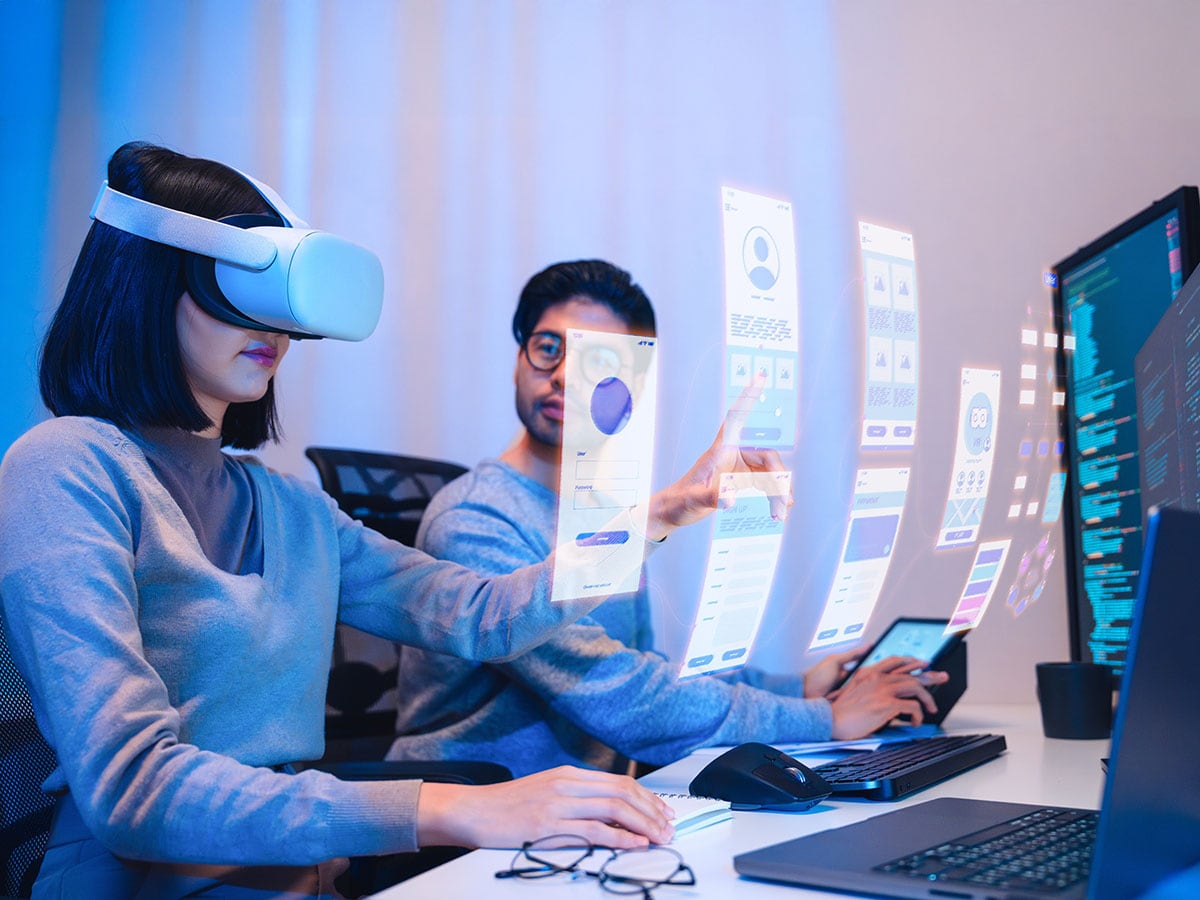 Going forward, we’ll need to train people in the human attributes and skills GenAI and bots are not good at since that will comprise most of our work.
Going forward, we’ll need to train people in the human attributes and skills GenAI and bots are not good at since that will comprise most of our work.
Image: Shutterstock
Recent Accenture research suggests 44 percent of working hours across industries can be impacted by artificial intelligence… 14 percent at the low end to 76 percent at the high end… Ultimately, every role in an enterprise has the potential to be reinvented, once today’s jobs are decomposed into tasks that can be automated or assisted and reimagined for a new future of human + machine work. — B20, the G20 global business forum
Two things about work and learning are changing in this new age of GenAI—what we learn and how.
Going forward, we’ll need to train people in the human attributes and skills GenAI and bots are not good at since that will comprise most of our work. We’ll also need people to continuously upgrade their skills as their tools, work, and environments change. Learning will be tech-enabled and a lifelong process.
What we learn will be a mix of physical things bots are not yet good at (like spotting bugs and food quality issues in the automated restaurant kitchen) and cognitive things, like analysing new situations without data, generating novel approaches to addressing them, asking great questions of GenAI or humans; and using critical thinking to assess their outputs and direct their efforts. Emotional intelligence will be key to human work, despite the comfort of an anonymous GenAI counsellor or Jill Watson’s success as an empathetic tutor (from IBM’s Watson tool suite).
In fact, nearly 90 percent of executives rank “soft skills” as more important than ever. According to LinkedIn Learn research, the top skill sought by business recruiters is communication, followed by eight other soft skills in the top 10. The one that grew most in importance? Adaptability.
In addition to using technology, interpersonal skills, creative thinking, and the ability to innovate, intrapersonal skills will be essential. The World Economic Forum and others have included in their future skill list comfort with uncertainty, confidence, positive attitude, risk-taking, self-awareness, self-motivation and discipline, among others.
Can technology help us enhance our intra- and interpersonal skills, as well as “hard” skills? Absolutely.
Psychometrics and bio-readings help us learn about ourselves and assemble whole-brained teams and organisations. With headset-based neuro readings, hormone, electrodermal, facial/eye/body tracking, and more, we can track and train skills like moderated reactivity in stressful situations, crisis management, use of intuition, synchrony with fellow negotiators or an audience, and so on. In fact, Neuro-leadership research shows that using more of the brain for decision-making leads to better decisions—a skill that can be honed.
AI and GenAI are, of course, the stars of the day. They enable us to develop our higher-order cognition, learn to collaborate with AI, and learn about, well, anything. AI is now an indispensable tool that finds and explains information, summarises, simplifies, generates ideas and divergent perspectives, poses questions, debates, critiques and edits, co-authors, helps us practice interview skills, helps us overcome writer’s block, and more.
Also read: How will AI reshape our world? It’s really up to us
These tools facilitate in-the-work-moment learning (which may surpass formal learning) and personalised learning (and career) pathways. Harvard uses professor bots, and SPJ Global employs an AI tutor, available to all students.
Digital twins were once decades away but are now commercially available. Soul Machines has been making digital workforces and twins since 2016. Personal.ai offers a platform where you can easily build your own small-language-model, closed AI twin. Twins can be 24/7-available digital trainers, employee coaches, supervisors, administrators, and so on. Tomorrow’s workforce will need to collaborate with digital colleagues, and you may soon see them on the organisation chart.
VR, metaverse, simulations, and Engaged Learning Online (ELO) studios and visual wrap-around experience rooms increase engagement via enhanced realism. Learners can engage with others in context (good for teamwork), focus on what interests them, and (with simulations) engage in “do-overs” as many times as needed. ELO features simultaneous translation and other group productivity and relationship-fostering features.
Gnowbe’s Mobile microlearning offers 10 – 15 times the learner engagement of video learning, with active, immediately applicable skills in an online social setting and ongoing behavioural nudges.
Finally, gaming and optional learning offer a surprise. According to KPMG’s research on a client’s optional, gamified learning program on company offerings, revenues grew 25+ percent; the number of clients rose 16 percent; new-client sales increased 25 percent; and offices with more leader learning and overall learning grew revenues 19 percent and 16 percent better, respectively.
In short, technology isn’t just a tool for getting work done. It’s a tool that can help us be better humans.
Dr CJ Meadows, Director, i2e – The Innovation & Entrepreneurship Center at S P Jain School of Global Management.
